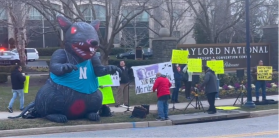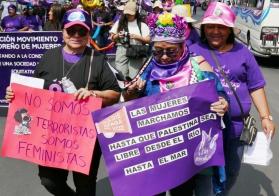Special Report: Congress Doubles U.S. Aid to Central America
At the close of the 2015 legislative session, the United States Congress approved $750 million to implement the Obama administration’s Strategy for Central American Engagement as part of the Omnibus Funding Bill they passed to finance the government through September 2016. The Central America funds will support the Alliance for Prosperity Plan, a tri-country plan developed by the governments of Guatemala, El Salvador, and Honduras at the US government’s prompting and with heavy oversight by the Inter-American Development Bank. The Plan, ostensibly aimed at stemming Central American migration, has raised major concerns by human rights, environmental and labor organizations in the United States and throughout the region.
With the new appropriations, development assistance will more than double, from $119.02 million in 2014 to $299.41 million next year. Of that, $65 million is designated for programs in El Salvador, $112 million for Guatemala and $93 million in Honduras and $10 million for Nicaragua, with the remainder administered by a regional program. These funds will be administered by USAID, which raises concerns given the agency’s recent programs in Honduras that intended to privatize education. Furthermore, the overall development model promoted by the Alliance for Prosperity has raised concerns for local social movements as it remains focused on a free trade model, extractive industries, and promoting private foreign investment.
Funding for security, rule of law, and justice administration increased by 150% from $161.5 million in 2014 to $405.5 million in 2016. Of this, the Central American Security Initiative (CARSI) will see its budget double from $61.5 million to $126.5 million. International Narcotics Control and Law Enforcement (INCLE) funds were more than doubled, from $100 million in 2014 to $222 million. An additional $57 million would go to other USAID programs in security, rule of law, and justice administration.
Doubling security aid to the region is a major red flag, especially given the Honduran and Guatemalan security forces’ implication in human rights abuses. Throughout the region, CARSI’s tendency to militarize public security administration has exacerbated human rights abuses, nor has it proven effective in resolving structural problems of impunity and access to justice. Furthermore, the major increase in INCLE funds foretells an expansion of the same Drug War policies that have terrorized Mexico, which suffered more than 70,000 drug war-related deaths from 2006 to 2012.
In a parallel move, Congress separately doubled the Defense Department’s Drug War budget in Central America from approximately $33 million to over $66 million.
Of additional concern is that the final State Department funding bill includes anti-refugee and anti-immigrant conditions that were introduced by the House Subcommittee on State and Foreign Operations that condition aid on actions by the Central American countries to enforce their regional borders, halt undocumented migration, and facilitate the repatriation of deportees sent home from the US border. The recent US push to ramp up enforcement along the Mexico-Guatemala border under the Plan Frontera Sur program has resulted in myriad abuses and likely mishandling of asylum cases, providing bleak foreshadowing of what expanding this strategy of externalizing US border enforcement will bring for Central America.
In response to major concerns raised by advocacy and solidarity groups about the human rights and corruption records of the Honduran and Guatemalan governments, in particular, the bill also reflects conditions introduced by the Senate that require Central American government’s create “autonomous, publicly accountable [entities] to provide oversight of the Plan,” undertake efforts to combat corruption and prosecute corrupt officials, fight impunity, particularly in cases of human rights violations committed by the military or government, and ensure that “local communities, civil society organizations (including indigenous and other marginalized groups) and local government” are consulted and involved in implementation of the Alliance for Prosperity in areas that affect them.
However, Honduran and Guatemalan social movement allies have expressed concern that these conditions are too weak. According to Annie Bird of Rights and Ecology, “the conditioning language is vague...the final legislation calls for ‘cooperation’ with regional human rights entities. This will allow the State Department a lot of room to claim that governments are complying, even when they aren't.”
Conditions aside, the Alliance for Prosperity has drawn criticism from members of the Central American social movement and their US allies for expanding the same economic and security policies that have created the inequality and structural and social violence that fuels Central American migration.
With the US appropriations process for 2016 finally concluded, movements in Central America and the US will likely shift to fighting the implementation of the most dangerous policies and projects, particularly efforts to militarize regional borders, promote privatization, and pursue further natural resource extraction. Given the increases in police and military aid, the struggle to end the US War on Drugs will take on renewed urgency for the region. And as other funding sources like multi-lateral lending institutions, private funders, and other countries announce what they will contribute to the Alliance for Prosperity, communities will continue to resist projects that threaten their sovereignty, the environment, and their livelihoods.

 "I am a CISPES supporter because continuing to fight for social justice and a more people-centered country means continuing the dream and sacrifice of thousands of my fellow Salvadorans who died for that vision.” - Padre Carlos, New York City
"I am a CISPES supporter because continuing to fight for social justice and a more people-centered country means continuing the dream and sacrifice of thousands of my fellow Salvadorans who died for that vision.” - Padre Carlos, New York City

